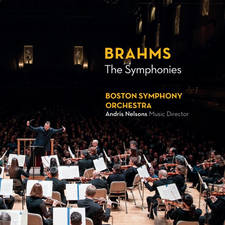Does classical music really make babies smarter?
21 May 2025, 12:00 | Updated: 21 May 2025, 12:43

Do lullabies send babies to sleep? Does Mozart really make your child smarter? We look at some of classical music’s biggest impacts on babies and children.
Listen to this article
For thousands of years, parents have been singing to their children. The first recorded lullaby was etched onto a clay tablet in cuneiform script four millennia ago by an ancient Babylonian.
From ‘Hush Little Baby’ to Brahms’ Cradle Song, some of the best-known pieces of classical music are lullabies that are deeply ingrained in our instincts of how we interact with babies. But how much does music, and classical music in particular, really help babies?
Read more: What are the lyrics to Brahms’ Lullaby and what’s the story behind it?
Impact on unborn babies

It turns out classical music can support children before they are even born. Research at the Autonomous University of the State of Mexico found that exposure to calm classical music has a soothing effect on unborn babies. Scientists played music through headphones placed on the abdomens of pregnant mothers, which led to the foetuses having more regular heartbeat patterns.
The music played to the foetuses included ‘The Swan’ from Carnival of the Animals by Camille Saint-Saëns and ‘Arpa de Oro’ by Abundio Martínez.
Not all music was equally effective, though. The traditional Mexican song ‘Arpa de Oro’ – a gentle guitar – produced stronger changes in heart rate patterns than the Saint-Saëns. Although it was not investigated in this piece of research, this difference suggests that musical characteristics such as melody, rhythm, or cultural familiarity might influence how fetuses respond to music.
“While we cannot yet claim any direct effects on long‑term neurodevelopment,” Eric Alonso Abarca‑Castro of Universidad Autónoma Metropolitana–Lerma said, “These preliminary findings open the door to future research into how prenatal sensory environments might influence the developing nervous system.
“We speculate that this momentary effect could stimulate the development of the foetal autonomic nervous system”, she added.
Read more: 10 beautiful pieces of classical music for guitar
Another 2018 study found that foetuses responded positively to classical music: 84% of unborn babies who were played classical music responded by moving their mouths. This response was significantly higher than the response to pop music, which was only 59%.
The Mozart Effect

In 1993, scientists at the University of California conducted research that would shift public consciousness – not necessarily correctly – about the impact of classical music on brain development. Led by Frances Rauscher, researchers explored the impact of playing Mozart on spatial reasoning. They found that those who listened to Mozart’s Sonata for Two Pianos in D major, for a few minutes before taking a test that measured spatial relationship skills did better than students who took the test after listening to another musician or no music at all.
When this study was published (and republished in 1995) the media ran with the idea that it improved IQ, even though that was not something the study covered. This became known as ‘The Mozart Effect’.
Journalist Alex Ross wrote a 1994 article in The New York Times that led this charge, suggesting that the research showed Mozart’s music increased students’ IQs, even suggesting listening to it was a way students could ‘get ahead’.
“Researchers… have determined that listening to Mozart actually makes you smarter,” he wrote.

This media storm consequently led people to believe that playing music to babies would make them smarter. In 2000, Don Campbell published The Mozart Effect for Children, which suggested that music can improve a child’s language, movement, and emotional skills at home, school, and play.
It also had a political impact: at one point the US state of Georgia even suggested creating a budget to provide every child with a CD of classical music.
However, whilst there has certainly been no proof that classical has a negative impact on babies’ and children’s IQs, this study did not show that Mozart could make your baby smarter.
Language development
While Mozart might not improve your baby’s IQ, the Viennese Waltz King, Johann Strauss might be able to help your baby learn to speak.
Babies who participated in play sessions with music, and especially waltz-time rhythms, showed an improved ability to process speech and music sounds, researchers at the University of Washington’s Institute for Learning and Brain Sciences found.
A group of babies were split into two groups to take part in a series of 15-minute play sessions: one with music, where an experimenter led babies and their parents through tapping out beats in time with the music, and one where no music was featured at all but played with cars and toy blocks.

Music improves baby brain responses to music and speech
Afterwards, scientists scanned the babies’ brains while playing them a series of music and speech sounds, occasionally disrupting rhythms. The babies’ brains would show a particular response to indicate they could detect the disruption.
Babies in the music group showed stronger brain responses to the disruptions in the music and the speech played to them, compared with the babies in the non-music group.
This suggests that the music sessions had improved the babies’ ability to to detect patterns in sounds.
“Our study is the first in young babies to suggest that experiencing a rhythmic pattern in music can also improve the ability to detect and make predictions about rhythmic patterns in speech,” researcher Christina T. Zhao said.
So, next time you want to work on your baby’s first words, try a recording of ‘The Blue Danube’ or perhaps Tchaikovsky’s ‘Waltz of the Flowers’ first.
Read more: 10 most beautiful and calming pieces of classical music for babies
Calm and comfort
We know that lullabies have been sung since the first exasperated mother tried to get a restless baby to sleep.
Much like playing calming music to babies in the womb, scientists found that preterm neonates who listen to lullabies and classical music were likely to have higher oxygen and comfort levels. They also found that listening to this kind of music helped to stabilise the babies’ vital signs.

Classical music has an impact on sleep for older children too. A 2017 study found that toddlers fell asleep quicker when classical music was played as they settled down.
Dr. Tiffany Field, the paediatric researcher at the University of Miami who led the study, said that “with the toddlers there was a 35% faster sleep onset. With the preschoolers it was a 19% faster sleep onset.”









































